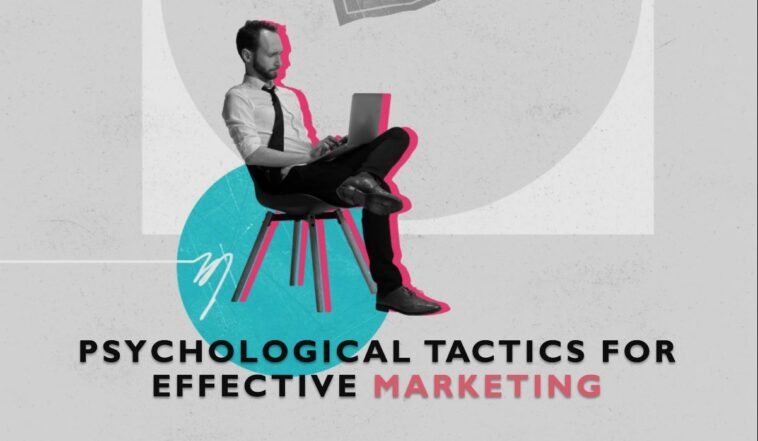Are you looking to improve your marketing strategy? Do you want to understand the psychology behind why people make purchasing decisions? The science of persuasion can help you create effective marketing campaigns that engage and convert potential customers.
By understanding the psychological tactics that influence human behavior, you can tailor your messaging and approach to meet the needs of your target audience. In this article, we will explore five key principles of persuasion: social proof, scarcity, reciprocity, authority, and emotion.
By mastering these tactics, you can create a compelling brand story that resonates with consumers on a deeper level and encourages them to take action.
So let’s dive in and discover how the science of persuasion can elevate your marketing game.
Social Proof: The Power of Influence
Don’t believe that social proof works? Take a look at the countless studies that prove its power in influencing our decisions. Social proof is the psychological phenomenon where people conform to the actions of others because they think it’s the right thing to do.
It’s a fundamental principle used in marketing and advertising, as it helps to build trust and credibility with potential customers.
One example of social proof is customer reviews. When people are looking for products or services, they often turn to online reviews to help them make their decision. Positive reviews can be incredibly powerful in persuading someone to try out a product or service.
In fact, according to one study, 88% of consumers trust online reviews as much as personal recommendations.
Another way businesses can use social proof is by using endorsements from celebrities or influencers. When someone famous promotes a product or service, it can significantly increase its perceived value and desirability.
This is because people often want to emulate those they admire or look up to. However, it’s important for businesses to ensure that any endorsements are genuine and align with their brand values. Social proof is a powerful tool for marketers looking to influence consumer behavior.
By showcasing positive customer reviews and leveraging endorsements from influential figures, businesses can build trust and credibility with potential customers and ultimately drive sales.
Understanding how social proof works can give you an edge over your competition in today’s crowded marketplace.
Scarcity: Creating Urgency in Marketing
You can easily create urgency in your marketing by emphasizing scarcity. By highlighting the limited availability of a product or service, you tap into people’s fear of missing out (FOMO) and drive them to take action.
Here are three ways to use scarcity in your marketing:
- Limited time offers: Set a deadline for a promotion or discount, and communicate it clearly to your audience. This creates a sense of urgency and encourages people to make a purchase before the offer expires.
- Limited quantity offers: Use phrases like ‘while supplies last’ or ‘only X left in stock’ to emphasize that the product is scarce. This taps into people’s desire for exclusivity and makes them more likely to buy.
- Exclusive access: Create VIP programs or membership clubs that offer exclusive benefits or early access to new products. This fosters a sense of community and makes customers feel special – which can lead them to make more purchases.
It’s important to note that using scarcity tactics ethically is key. Don’t create false scarcity by artificially limiting supply, as this can damage trust with your customers.
Instead, focus on creating real scarcity by offering genuinely limited-time promotions or exclusive products/services.
Leveraging scarcity is an effective way to create urgency in your marketing strategy. By tapping into people’s FOMO and desire for exclusivity, you can encourage them to take action sooner rather than later.
Just be sure to use these tactics ethically and avoid creating false scarcity – trust with your audience is crucial for long-term success in any business endeavor!
Reciprocity: Give to Receive
Giving is like planting a seed that will eventually grow into something greater, which is why reciprocity is a powerful tool in building relationships with customers.
When you give something to someone without expecting anything in return, it creates a feeling of indebtedness. This feeling can be harnessed by marketers through the use of free samples or trials, which can lead to increased sales and customer loyalty.
One example of how reciprocity works in marketing is through the use of personalized offers. By giving customers tailored deals based on their past purchases or interests, companies can increase the likelihood of future sales. This not only makes the customer feel valued but also creates a sense of obligation to reciprocate the gesture by making a purchase.
However, it’s important for businesses to be sincere in their efforts to give back to their customers. Simply offering freebies or discounts without any real value can come across as disingenuous and actually harm the relationship with customers.
When executed properly though, reciprocity can be an effective tool for building long-term relationships with customers and increasing brand loyalty.
Authority: Establishing Credibility
Establishing credibility is crucial in building trust and loyalty with your audience, as it allows them to view you as an expert in your field and feel confident in the products or services you offer.
Here are four ways to establish authority:
- Display credentials: Whether it’s a degree, certification, or award, showcasing your accomplishments can help establish credibility and build trust with potential customers.
- Provide valuable content: Sharing well-researched insights or offering free resources like e-books or webinars can showcase your expertise and build rapport with your audience.
- Use social proof: When others endorse your brand through testimonials, reviews, or partnerships with reputable organizations, this can signal to potential customers that you are trustworthy and knowledgeable.
- Communicate clearly: Using industry-specific terms correctly and presenting information confidently can convey that you know what you’re talking about. Be sure to avoid jargon overload though – clear communication is key!
By establishing authority through these methods, you’ll be better equipped to persuade potential customers to choose your products or services over competitors’. Remember – people want to do business with those they perceive as credible experts!
Emotion: Connecting with Consumers on a Deeper Level
When connecting with consumers on a deeper level, it’s important to tap into their emotions and create a visual representation of your brand that resonates with them. Emotions are powerful drivers of behavior, and when you can evoke strong feelings in your audience, you’re more likely to make an impact.
One way to do this is by telling stories that connect with people on a personal level. Research has shown that emotional advertising is more effective than rational advertising for building brand loyalty. Emotionally charged ads tend to be more memorable and have a stronger impact on consumer behavior than those that rely solely on facts and logic.
By appealing to the heart rather than the head, you’re more likely to create a lasting connection with your audience. To create emotionally resonant marketing materials, it’s important to understand what motivates your target audience. What are their hopes, fears, dreams? What makes them happy or sad? By tapping into these underlying emotions, you can craft messaging and visuals that resonate deeply with your ideal customers.
This requires empathy and understanding – putting yourself in their shoes and seeing the world from their perspective. When done well, emotional branding can help build long-lasting relationships between consumers and brands.
Bottom Line
As you wrap up this article on the science of persuasion, you can’t help but feel inspired and ready to put these psychological tactics into action for your own marketing efforts.
You envision yourself using social proof to showcase happy customers or limited stock to create urgency, all while establishing credibility through authority figures and connecting with consumers on an emotional level.
But as you close your laptop and step out into the world, you realize that persuasion is not just a marketing tool – it’s a part of everyday life.
From convincing your friend to try a new restaurant with rave reviews, to persuading your boss to give you a raise based on your hard work, the principles of psychology can be applied in various aspects of our lives.
In fact, as human beings we are constantly being persuaded by others and even ourselves. The key is to understand how these techniques work so that we can make informed decisions and communicate effectively with those around us.
So go ahead, use the power of persuasion for good and watch as you achieve success in both business and personal relationships.




Comments
0 comments